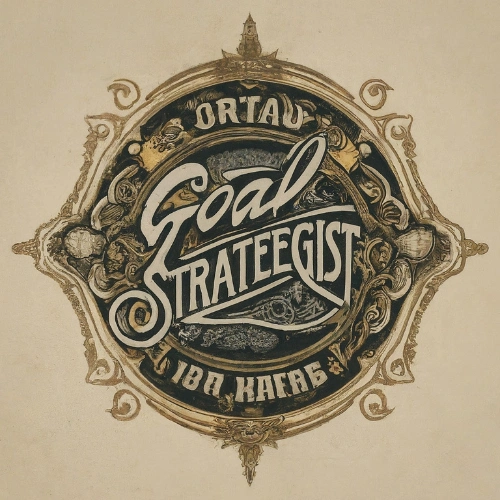When you think of the French Revolution, iconic images of the Bastille being stormed or the guillotine’s blade might spring to mind. But have you ever pondered what drove the French to take such drastic actions? They weren’t just rebelling for the thrill of it; they had specific goals in mind.
Understanding the objectives of the French Revolution is like unlocking the secrets to France’s radical transformation. You’ll discover that the revolutionaries had a vision for a society radically different from the monarchy-dominated one they lived in. Let’s delve into four key goals that fueled their fiery passion for change.
The French Revolution was a complex social and political upheaval, but its core aims revolved around concepts of liberty, equality, fraternity, and a fairer society. These weren’t just lofty ideals; they were demands that shook the very foundations of French society.
Liberty: Breaking Free from Oppression
When you think about the French Revolution, think of it as a decisive response to centuries-old tyranny. The pursuit of liberty stood at the forefront of the revolutionaries’ hearts and minds. They sought to dismantle the restrictive Feudal system, which granted excessive rights to the aristocracy and clergy at the expense of the common people. This relentless craving for freedom propelled the revolution and shaped the course of European history.
Imagine living in a time where your rights came second to the whims of a monarch. The suffocating grip of the Ancien Régime meant severe social and economic limitations for the majority. Yearning to breathe free, the revolutionaries wanted to ensure that individual freedom would be a cornerstone of their new society. This quest for liberty wasn’t just political—it was personal. It spread far and wide, igniting a flame that could not be extinguished.
As part of their endeavor, the revolutionaries introduced significant legal reforms. They aimed at reducing the power of the monarchy and creating a society where laws protected the freedoms of its citizens. The Declaration of the Rights of Man and of the Citizen, a seminal document of the French Revolution, set forth the principles by which they aimed to govern:
- Freedom of speech
- Freedom of religion
- Equal protection under the law
These rights were not merely abstract notions but tangible objectives that the populace fought for on the streets of Paris and across France.
Remember, the thirst for liberty didn’t just entail ending their own oppression. The French Revolution sought to provide a blueprint for others to follow, sparking the idea that every human being was entitled to fundamental rights and freedoms. This notion shattered the convictions of conservative European nations, causing a ripple effect that ushered in an era of revolutionary thought across the continent.
Equality: Challenging the Hierarchies
At the heart of the French Revolution was the ideal of equality. The societal structure pre-revolution was like a pyramid, with the monarchy at the peak and the common people forming the broad base, burdened by their superiors. Revolutionaries sought to smash this hierarchy and create a more equitable society.
Your understanding of equality at this time reflects the belief that everyone should be granted the same opportunities and rights, irrespective of birth or status. The revolution paved the way for profound changes in the way society viewed and treated its citizens.
Key legal reforms targeted the unfair privileges of the clergy and nobility. Through laws like the August Decrees and the Civil Constitution of the Clergy, special privileges were abolished, leading to equal legal treatment and taxation. Contrary to the past, where your lineage virtually predestined your position in life, the new order meant your talents and abilities were paramount.
In the economic sphere, efforts focused on leveling the playing field. The abolition of guilds and labor restrictions meant that you could pursue any trade or profession. This shift was revolutionary, offering every individual the right to practice a profession of their choice, dodging the bounds that once may have confined you to a life of serfdom or rigid craft hierarchies.
The revolutionaries introduced public schooling systems designed to be accessible to all and diminish the educational gap that maintained the traditional hierarchies. If you were part of the common folk, your children now had the chance to be educated alongside those of the nobility.
As the idea spread that no one was inherently superior to another, positions in government and military became attainable based on merit rather than nobility. Officerships, which once were reserved for those of noble blood were now open competitions. If you had the skills and knowledge, you could rise in rank, something unheard of before the Revolution.
This drive for equality was meant to transcend France’s borders and inspire equality worldwide. It wasn’t just a national movement; it sparked the idea that equality was a right for all humanity everywhere.
Fraternity: Fostering Unity and Solidarity
As you delve deeper into the French Revolution, it’s essential to recognize the goal of fraternity, a term championing unity and solidarity among the people. This goal aimed to transcend the existing social divisions and build a cohesive society. Fraternity was more than a political objective; it became a social ethos that the revolutionaries passionately pursued.
The revolutionaries believed in the idea of collective well-being. Their vision was to create a nation where individuals would look beyond personal gains and work towards the common good. They encouraged citizens to consider each other as brothers, regardless of their socioeconomic status.
- Brotherhood was to be the cornerstone of public policy.
- Initiatives were taken to aid the less fortunate.
- Cultural events and festivals were organized to celebrate this newfound unity.
Public Welfare took a front seat. The notion of fraternity materialized into the establishment of institutions that aimed to safeguard the welfare of all citizens. Social security systems found their earliest roots during this period, emphasizing collective responsibility.
Reformers also worked on the redistribution of land, which was a pivotal component in strengthening the bond between citizens. This act of redistribution was a tangible manifestation of brotherhood, with the shared goal of eradicating poverty and economic disparity.
Furthermore, the fraternity principle helped drive France towards a more democratic approach to governance. In the spirit of collective decision-making, political clubs and societies emerged. These became spaces where individuals from different backgrounds could share their opinions and influence policy making.
While the pursuit of fraternity faced numerous challenges, including political conflicts and resistance from conservative factions, it remained an ideal that imbued the revolution with a sense of shared purpose and commitment to a common cause.
In moving forward from a society riddled with division, the French Revolution thus laid the groundwork for a more united and interdependent community—one where fraternity was as crucial as liberty and equality.
Building a Fairer Society: Social and Economic Reforms
Revolutionary France was committed to rectifying social and economic disparities that had long plagued the society. This commitment translated into concrete reforms designed to ensure a more level playing field.
Social stratification, a cornerstone of the Old Regime, was among the first targets. The Estate system, which divided the population into three unequal classes, was abolished, thereby eradicating the legal distinction between the clergy, nobility, and common folk. This allowed for the implementation of laws that conferred equal rights upon all citizens, a stark departure from the days when bloodline dictated one’s social and legal standing.
Simultaneously, economic reforms were undertaken to breathe life into France’s stagnating economy. One such reform was the abolition of feudal dues, a system in which peasants were obligated to make payment in kind or labor to their lords. The National Assembly decreed that these dues could be redeemed for a monetary payment, freeing peasants from the binds of feudalism.
Moreover, fiscal reforms made taxation more equitable. No longer would the Third Estate shoulder the nation’s tax burden alone; instead, taxes were imposed based on one’s ability to pay, and privilege was no longer a means to evade fiscal responsibilities.
- Dismantling Guild System: To stimulate commerce and industry, the guild system, which imposed restrictions on trade and manufacturing, was dismantled. The Le Chapelier Law of 1791 outlawed guilds and worker coalitions, encouraging free enterprise and competition.
- Land Redistribution: Lands held by the Church and emigrating nobles were seized and sold off in smaller plots. This not only generated revenue for the war-torn state but also provided many peasants their first opportunity to own land.
These reforms were not without their challenges or detractors, but they signified a monumental shift toward a society where opportunity was not a privilege but a right that could be earned and enjoyed by all. As you explore these reforms, it becomes evident that the revolutionaries’ quest for a just society was as fervent as their desire for political freedom.
Conclusion
You’ve seen how the French Revolution’s goals were deeply rooted in creating a society where liberty, equality, and fraternity weren’t just ideals but tangible realities. The abolition of the feudal system and the Estate system, legal reforms, and economic restructuring were all bold steps toward a fairer society. By understanding these goals, you’re better equipped to appreciate the profound impact of the Revolution on modern democratic principles and the fight for human rights worldwide. The legacy of the revolutionaries’ efforts is a testament to the enduring power of people united by a vision of equality and justice for all.


Leave a Reply